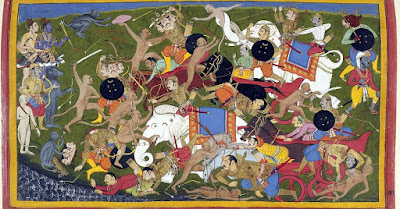THE NOVEMBER MAN- A LOOK AT THE ORIGIN OF SPY NOVELS
INTRODUCTION
Who does 'The November Man' remind you of when you Google the title? James Bond, isn't it? Well, the lead is Pierce Brosnan popularly remembered as James Bond in the series of the same name by Ian Fleming.
Falling in the genre of spy thrillers, it is based on the novel by Bill Granger. There Are No Spies is the seventh installment of the novel series- The November Man.
What Bill Granger and Ian Fleming have in common are the genre and the actor!
You are not wrong if Mission Impossible series crosses your mind too!
This makes us dig deeper into the history of spy novels.
THE ORIGIN
The early origins according to William Bendler takes us back to the Hebrew Bible titled the Book of Joshua. In it, Chapter 2 of the Hebrew Bible is considered to be the first spy story. However, spy fiction as a genre started to take shape in the early nineteenth century. The credit goes to American novelist James Fenimore Cooper. His works The Spy( 1821) and The Bravo(1831) are the earliest examples of spy fiction.
WHAT ARE THE INGREDIENTS IN A SPY FICTION?
The most active ingredient is espionage. It is central to spy fiction. The emergence of World Powers between World War One and Two resulted in political conspiracies and rivalries. Furthermore, the set up of Intelligence Agencies were an added inspiration. Spy fiction can be clubbed with the novel of adventure and thriller. Here, Edgar Wallace's The Four Just Men (1905) is worth the mention.
Graham Greene's The Quiet American(1955), Rudyard Kipling's Kim(1901), Joseph Conrad's The Secret Agent(1907) and Under Western Eyes(1911), G.K Chesterton's The Man Who Was Thursday(1908), Sir Arthur Conan Doyle's The Adventure of Sherlock Holmes, Baroness Emma Orczy's The Scarlet Pimpernel(1905) and such others are notable examples of spy fiction in the early twentieth century.
THE TERM
The term 'spy novels' was defined by Irish author Erskine Childers in The Riddle of the Sands(1903). Now, this novel gained immediate popularity and led to the discovery of a subgenre called invasion literature. Why? Because the plot has the German plan to invade Britain. William Le Queux and E. Philips Oppenheim of British origin in the early twentieth century gained a wide audience for invasion literature.
AN OVERVIEW







Comments
Post a Comment